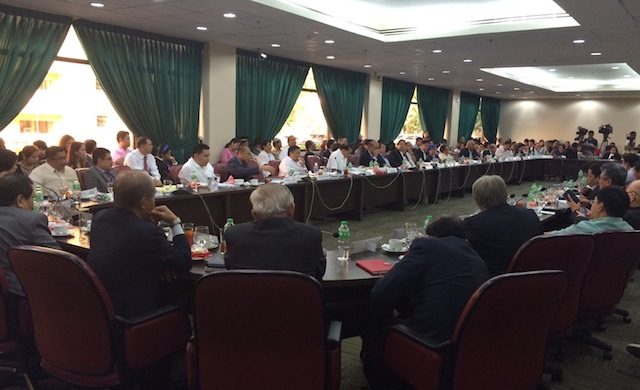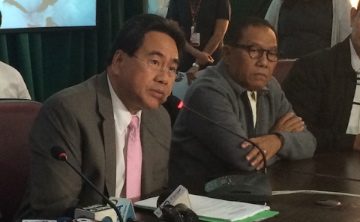SUMMARY
This is AI generated summarization, which may have errors. For context, always refer to the full article.

MANILA, Philippines – Provisions in the Bangsamoro bill that seeks to give the proposed autonomous region the powers to create its own auditing, electoral, civil service, and human rights bodies are set to be deleted for being unconstitutional.
Cagayan de Oro Representative Rufus Rodriguez said on Tuesday, February 3, there is “more or less” a consensus on this among the 75 members of the House of Representatives’ ad hoc committee discussing the proposed Bangsamoro Basic Law (BBL), which he chairs.
“All constitutional provisions for national agencies with powers provided under the Constitution, we cannot dilute that,” Rodriguez said.
Rodriguez earlier said that the ad hoc committee will not pass an unconstitutional Bangsamoro Basic Law. The measure seeks to create a new autonomous region in Mindanao with greater political and fiscal powers than the current one in place.
The House panel pushed through with deliberations despite pressures to end the peace process following the deadly clash in Mamasapano, Maguindanao, between elite cops and Moro rebels.
They, however, suspended discussions on security aspects of the proposed law.
The proposed BBL is a product of the peace accord between the government and the Moro Islamic Liberation Front (MILF). Its passage is in limbo after Senator Ferdinand Marcos Jr suspended committee hearings while the incident is under investigation.
Provisions

The Philippine Constitution created 4 independent and fiscally autonomous commissions aside from the 3 branches of government. They are the Commission on Audit (COA), Commission on Elections (Comelec), Civil Service Commission (CSC), and the Commission on Human Rights (CHR).
The Bangsamoro bill provides for the creation of a Bangsamoro Commission on Audit, a Bangsamoro Electoral Office, a Bangsamoro Civil Service Office and a Bangsamoro Human Rights Commission.
Some experts said the creation of such bodies violates the Constitution because there can only be one national COA, Comelec, CSC, and CHR.
One of the issues that has arisen in previous hearings was the matter on whether the Bangsamoro agency or the national agency would prevail in case of disparities – in auditing reports, for example.
Proponents of the law argued that all 4 bodies would function without prejudice to the powers, authorities, and duties of their national counterparts.
Should there be disparities in audit reports, proponents said that the national COA would prevail since the Bangsamoro auditing body would continue to be a part of the national body.
Peace panels of the government and the MILF maintain that the proposed law, which went through screening in Malacañang before being transmitted to Congress, is constitutional. Congress, however, has the power to make changes.
Rodriguez said the consensus among ad hoc committee members is that there can only be one COA, one CHR, one CSC, and one Comelec.
The ad hoc committee aims to put the bill into a vote by February 17, barring any delays. (READ: ‘No Maguindanao clash reports, Bangsamoro law hearings) – Rappler.com
Add a comment
How does this make you feel?
There are no comments yet. Add your comment to start the conversation.